Surging inflation in Nigeria has, in the views of economic experts, plunged the West African country into the worst economic crisis in years, as prices of goods and services have shot far beyond the purchasing power of many residents.
The latest data released by the National Bureau of Statistics (NBS) revealed that the headline inflation rate rose to 31.70 per cent in February from 29.9 percent in January 2024. This is the highest since January 1996 when it rose to 47.56 per cent, mainly driven by food and non-alcoholic beverages.
Join our WhatsApp ChannelInflation in Nigeria is influenced by a combination of internal and external factors. The reasons for persistent increase in prices of goods and services in the country is complex, encompassing economic, political, and social dimensions. Analysts have over time identified factors contributing to surging inflation in Nigeria with the key ones include forex crisis, rising cost of energy, high fiscal deficit, and lingering security challenges in major food-producing areas.
Foreign Exchange Crisis
Because Nigeria’s economy is import-dependent, making the over 200 million people rely heavily on imported goods to meet their needs, the country is always susceptible to external shocks.
In an attempt to fix the ailing economy, President Bola Tinubu had immediately after assuming office, taken a bold step to carry out some reforms and attract investors. Such reforms included unification of the multiple exchange rates in the foreign exchange (forex) market and the floating of the naira to allow market forces to determine the rate of the local currency against the dollar and other major currencies. This consequently, led to devaluation of the naira. Between June 2023, when the forex market was liberalized, and mid-February 2024, the naira depreciated by 69 per cent.
This devaluation increases the cost of imports, contributing to rising prices for goods and services, particularly for a country that relies heavily on imports for many basic and essential commodities. Since the devaluation, the Central Bank of Nigeria (CBN) has continued to adjust Customs exchange rates for calculating import duties in the nation’s ports. From $422.30/$ in June 2023, the rate rose to N952/$ in December 2023 and further jumped to N1,605.82/$ by 21 February 2024 before dropping to about N1,400. As of Tuesday, 12 March, the rate was again raised from N1,593.888/$ to N1,624.732/$, following further depreciation in the value of naira. However, as at today, the rate has dropped to N1,593.41/$.
Economic experts have observed that it has a significant effect on the cost of imported goods as importers pass on the cost to the final consumers.
Spike in Energy Costs
Fluctuations and increases in global oil prices impact Nigeria, despite being an oil-producing nation, due to its reliance on imported refined petroleum products. The removal of subsidies on petrol which the Tinubu’s government said were no longer sustainable because of the heavy financial burden, has, however, had a significant impact on the spike in energy costs and the spiral effect on other things such as transport among others. This is as prices of petrol and diesel skyrocketed immediately the subsidies were gone. From about N189 per litre, petrol prices surged to over N600, recording an increase of more than 300 per cent within two months after the “subsidy is gone” pronouncement by President Tinubu.
Analysts have said there were no adequate measures to contain the shocks that were bound to come as a result of the reforms.
“Higher energy prices translate into increased production and transportation costs, which businesses often pass on to consumers,” said Dr Wisdom Selekekeme Krokeyi, a senior lecturer, Economics Department, Niger Delta University, in a chat with Prime Business Africa correspondent.
NBS Transport Fare Watch (June 2023 which was after the subsidy removal) showed that the average fare paid by commuters for bus journeys within the city per drop increased by 97.88 per cent from N649.59 in May 2023 to N1,285.41 in June 2023. Since then it has continued to rise with the attendant impact on goods conveyed across the country. Also, businesses that depend on gasoline and diesel-powered generators for electricity have had to increase prices for their services due to high energy costs as the nation continues to encounter epileptic power supply.
Members of the Organised Private Sector (OPS) have repeatedly lamented the impact of increasing cost of generating electricity to fuel their operations.
Monetary Policies
The Central Bank of Nigeria’s (CBN) monetary policy decisions, including interest rates and money supply management, can influence inflation, analysts have said.
They observed that policies that increase liquidity in the economy without corresponding growth in production can lead to higher inflation.
Recently, during the 293rd Monetary Policy (MPC) meeting, the CBN raised the Monetary Policy Rate (MPR), the benchmark interest rate, from 18.75 per cent to 22.75 per cent in an attempt to curb inflation.
However, some economic experts expressed concerns that while such conventional monetary policy measures could be effective in developed economies for controlling inflation, Nigeria’s case is different. Chief Economist and Partner at SPM Professionals, Mr Paul Alaje observed that inflation in Nigeria is “cost-push” not mainly about demand.
CEO of Centre for the Promotion of Private Enterprise (CPPE), Dr Muda Yusuf, while reacting to the MPC decision, said the outcome would hurt the real sector of Nigeria’s economy which is already bedeviled with numerous macroeconomic challenges, and that the informal sector accounts for close to 50 per cent of the economy. He noted that “Supply side issues are much more profound drivers of inflation,” adding that the new MPR hike would lead to an increase in the cost of credit to the few private sector players that have exposure to bank credits, and “it will impact their operating costs, prices of their products and profit margins, amidst very challenging operating conditions.”
Security Challenges and Agricultural Production
Security issues in various parts of the country have significantly impacted agricultural productivity. Conflicts in areas that are major agricultural hubs, disrupt farming activities, leading to reduced food production and contributing to food inflation.
According to the NBS data, food inflation surged to 37.92 per cent in February from 35.41 per cent in January 2024.
Activities of Boko Haram insurgents and bandits in many parts of northern Nigeria have sent many farmers out of farms. Instead of going to farms, many have found themselves in Internally Displaced Persons (IDPs) camps as they have been driven away by the criminal groups.
Government Policies and Tariffs
Import restrictions, tariffs, and bans on certain goods with the aim of encouraging local production can lead to short-term price increases if domestic production doesn’t meet demand immediately or if it faces its cost pressures.
The administration of former Muhammadu Buhari had in 2015 upon assumption of office, through the CBN, placed a ban on 41 items including rice from accessing foreign exchange in the official window.
This was to discourage importation of rice and boost local production. Prior to that, the Goodluck Jonathan administration had also put in place a 110 percent import duty and levy on rice to discourage heavy importation of the commodity that was taking place at that time. This measures didn’t go down well with masses, forcing the government to reduce it to about 70 per cent.
Eight years after these measures could not deter smuggling of the commodity into the country, as analysts believe smugglers were cashing in on demand gap to bring in the product illegally into the country because local production capacity didn’t increase.
Between 2015 and 2024, the price of rice has risen by over 700 per cent from N8,500 per 50kg bag to about N70,000.
Supply Chain Disruptions
Local and global supply chain disruptions, often caused by events such as pandemic, conflicts, or logistical challenges, have also impacted the availability of goods in Nigeria. Reduced supply against constant or increasing demand tends to drive prices up.
Because Nigeria’s economy is import-dependent, the global supply chain disruptions that occurred during the COVID-19 pandemic took a heavy toll on the country. According to Dr Yusuf, this disruption has been exacerbated by the Russia–Ukraine conflict, and the recent Israel-Hamas war.
Prime Business Africa recalls that shortly after the Russia-Ukraine war started, prices of commodities such as wheat that was largely imported from Ukraine jumped when the European nation’s exports were disrupted by Russian aggression around the Black sea. Since then, the prices of bread and other products made from wheat have continued to rise.
External Debts and Fiscal Policies
It is also believed that the Nigerian government’s borrowing and fiscal policies can also contribute to inflation if the debt levels are perceived as unsustainable, affecting investor confidence and the currency exchange rate. According to data released by the Debt Management Office, Nigeria’s total debt stock stood at N87.91 trillion (which was calculated as $114.35 billion using CBN Official Exchange Rate of US$1 to N768.76 as at 30 September 2023).
The breakdown of this debt revealed total external debt as N31.98 trillion ($41.59 billion) and total domestic debt of N55.93 trillion.
However with further depreciation of the naira value, coupled with recent approval of loans, Nigeria’s total public debt stock is expected to rise above N100 trillion.
Global Economic Conditions
The global economic conditions, including inflation in other countries, can have a knock-on effect on Nigeria through trade and investment flows.
Addressing inflation
Analysts have averred that addressing inflation in Nigeria requires a multi-pronged approach that involves stabilizing the currency, enhancing domestic production across key sectors, improving security, adopting prudent fiscal and monetary policies, and enhancing supply chain resilience. They said that though each of these measures targets specific drivers of inflation, when combined, could help mitigate inflationary pressures in Nigeria.
As part of measures to boost production and diversify the economy for export earnings, Dr Yusuf recently urged the government to address the challenges of power supply to reduce energy costs, and also reduce import duty on intermediate products and raw materials for industries to reduce production costs.
Mr Paul Alaje also stressed that in tackling inflationary pressure, there’s a need for the government to align monetary, trade, and fiscal policies.
He contended that the authorities cannot use monetary solutions alone to solve the current forex challenge, adding that the solution lies with improved productivity and increasing exports. “These will occur when we promote strong local manufacturing and agro-processing in all states and regions. We must also promote agricultural plantations in all sub-nationals,” he added.
Victor Ezeja is a passionate journalist with seven years of experience writing on economy, politics and energy. He holds a Master's degree in Mass Communication.

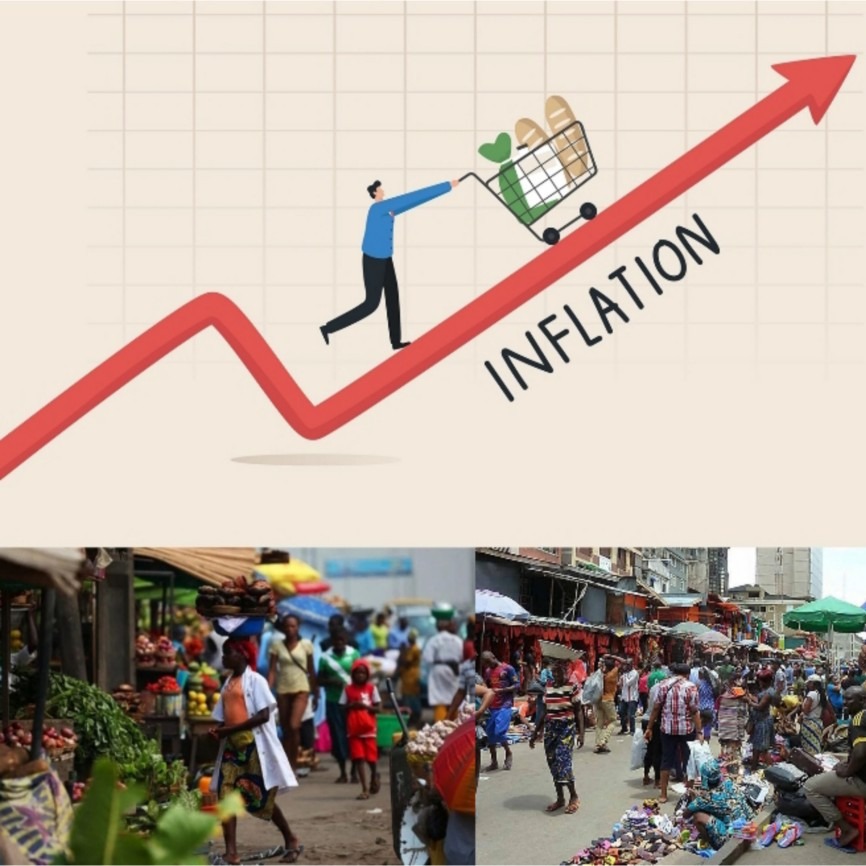



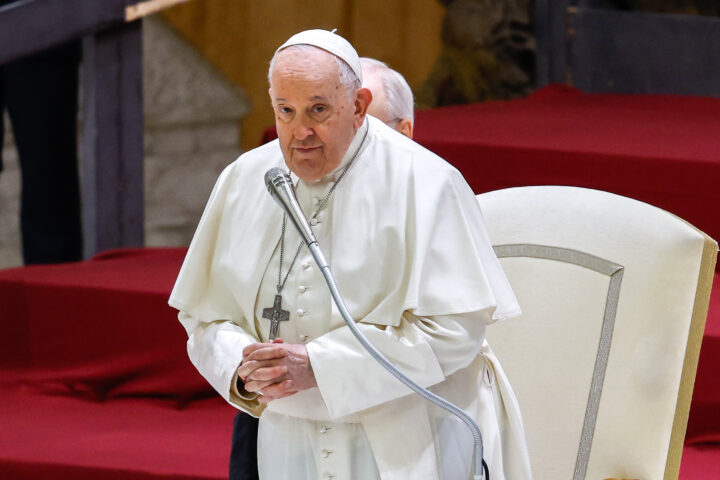







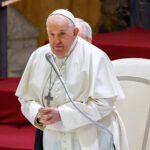



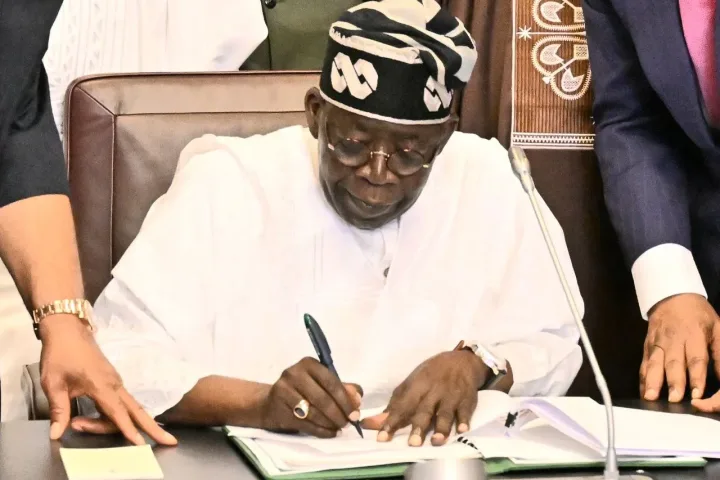
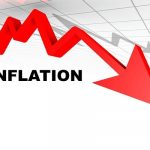
Follow Us